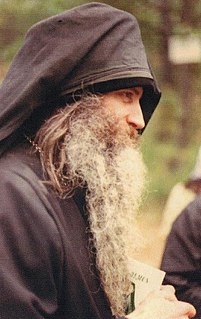A Quote by Thomas Hardy
Happiness is but a mere episode in the general drama of pain.
Related Quotes
Must love be ever treated with profaneness as a mere illusion? or with coarseness as a mere impulse? or with fear as a mere disease? or with shame as a mere weakness? or with levity as a mere accident? whereas it is a great mystery and a great necessity, lying at the foundation of human existence, morality, and happiness,--mysterious, universal, inevitable as death.
The belief that happiness has to be deserved has led to centuries of pain, guilt, and deception. So firmly have we clung to this single, illusory belief that we've almost forgotten the real truth about happiness. So busy are we trying to deserve happiness that we no longer have much time for ideas such as: Happiness is natural, happiness is a birthright, happiness is free, happiness is a choice, happiness is within, and happiness is being. The moment you believe that happiness has to be deserved, you must toil forevermore.
By utility is meant that property is any object, whereby it tends to produce benefit, advantage, pleasure, good, or happiness(all this in the present case come to the same thing) or (what comes again to the same thing) to prevent the happening of mischief, pain, evil or unhappiness to the party who whose is considered: if that party be the community in general, then the happiness of the community; if a particular individual; then the happiness of that individual
Why do men learn through pain and suffering, and not through pleasure and happiness? Very simply, because pleasure and happiness accustom one to satisfaction with the things given in this world, whereas pain and suffering drive one to seek a more profound happiness beyond the limitations of this world.
We do want the freedom to move scenes from episode to episode to episode. And we do want the freedom to move writing from episode to episode to episode, because as it starts to come in and as you start to look at it as a five-hour movie just like you would in a two-hour movie, move a scene from the first 30 minutes to maybe 50 minutes in. In a streaming series, you would now be in a different episode. It's so complicated, and we're so still using the rules that were built for episodic television that we're really trying to figure it out.
Lack of understanding of the true nature of happiness, it seems to me, is the principal reason why people inflict sufferings on others. They think either that the other's pain may somehow be a cause of happiness for themselves or that their own happiness is more important, regardless of what pain it may cause. But this is shortsighted. No one truly benefits from causing harm to another sentient being. . . . . In the long run causing others misery and infringing their rights to peace and happiness result in anxiety, fear, and suspicion within oneself.
I was talking to Shonda Rhimes the other day and I said, "I. Do. Not. Know. How. You. Do. This." While we're writing episode 10, episode 6 is shooting, episode 3 is in the edit, and episode 2 is in its color session...You've got seven episodes in different parts! It's a wild, wild, wild ride, which I thoroughly enjoyed. It was badass and amazing.







































